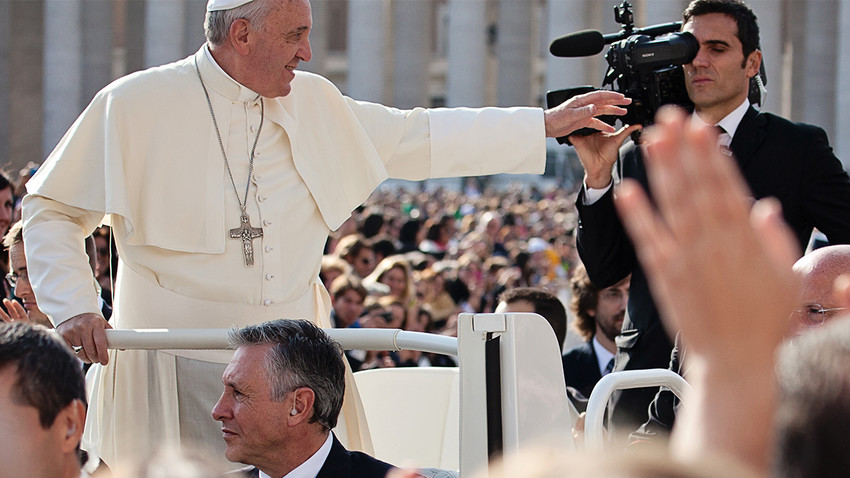
This Easter Whose Side Is He On?
In a world already irreparably fractured, Russia’s attacks on Ukraine over the last one month and three weeks—chronicled across the earth through live video feeds—have diminished any hope of global healing.
And yet many, who regard the pope as the most widely recognized religious leader in the world, harbor the hope Pope Francis might even yet this Easter spark a miracle of peace for the war in Ukraine, or at least a ceasefire.
After all, in his weekly audience on April 13, the pope admonished: “The peace that Jesus brings 'does not overpower others . . . It is not an armed peace.’ Instead, ‘The weapons of the Gospel are prayer, tenderness, forgiveness, and freely-given love for one’s neighbour, to any neighbour.' This, he said, ‘is how God’s peace is brought into the world’” (www.vaticannews.va/en/pope/news/2022-04/pope-at-audience-war-is-an-outrage-and-a-blasphemy.html).
However, this papal homily on peace notwithstanding, the Vatican’s decision to have a woman from Ukraine and a woman from Russia walk side by side through the traditional stations of the cross on Good Friday this week did not sit well with Ukrainian Catholics or their archbishop leader: “‘I consider such an idea inopportune, ambiguous and such that it does not take into account the context of Russia’s military aggression against Ukraine,' said Major Archbishop Sviatoslav Shevchuk, head of Ukraine’s Byzantine-rite Catholic Church” (www.independent.co.uk/news/world/europe/pope-francis-vatican-russia-ukraine-good-friday-b2057137.html).
But “Reverend Antonio Spadaro, a close aide of Pope Francis, has defended the decision, telling the Italian state broadcaster Rai that the pope is 'a pastor, not a politician’” (ibid).
Leaving that observation aside, one must admit the pope faces both a pastoral and a political challenge. Political because he is considered the head of the Vatican state, and pastoral because ostensibly he is the shepherd of all his flock which includes both Russia and Ukraine.
So what would the Good Shepherd Himself do, what would He say? “‘Man, who appointed me a judge or an arbiter between you?’” (Luke 12:14). Jesus usually remained above the fray and resisted being drawn into internecine squabbles. Or, “‘Do not suppose that I have come to bring peace on earth. I did not come to bring peace, but a sword’” (Matthew 10:34)? Here He specifically addresses family fractures that will turn members of the same household against each other. Or, “‘Blessed are the peacemakers, for they will be called children of God’” (Matthew 5:9).
Perhaps that line more than any other defines His disciples in this broken world. Even in our own church Ukrainians and Russians, Croats and Serbs, Muslims and Jews, Taiwanese and Chinese, Japanese and Koreans, Blacks and Whites indeed do kneel side by side in worshiping the Creator of us all. “Blessed are the peacemakers,” because while war is inevitable, peace is not. Peace is hard-won, hard-lived, hard-fought, hard sought. But peace is the high calling of the Risen Christ for all His followers.
“Christ is 'the Prince of Peace’ (Isaiah 9:6), and it is His mission to restore to earth and heaven the peace that sin has broken. . . . The heart that is in harmony with God is a partaker of the peace of heaven and will diffuse its blessed influence on all around. The spirit of peace will rest like dew upon hearts weary and troubled with worldly strife. Christ's followers are sent to the world with the message of peace” (Thoughts from the Mount of Blessing 27-28).
Then let that peace be what the “children of God” pray for and work for beyond this Easter. Thus truly blessed will we be.